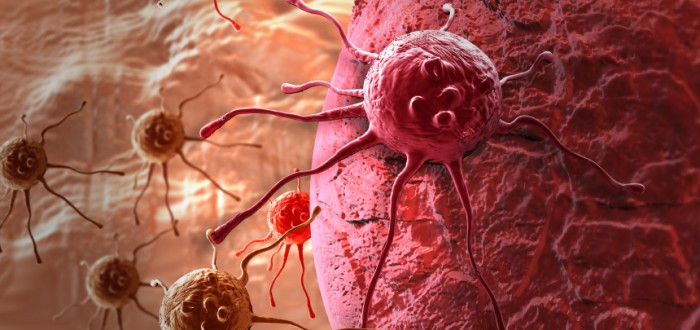Mesothelioma in its advanced stages often proves unresponsive to treatment. But researchers now believe they’ve hit on yet another way to attack the cancer late in the game.
The new approach involves genetically modifying immune-system cells so that they seek out and destroy cells harboring the protein mesothelin. Cells that harbor the most mesothelin are mesothelioma cells.
This potential treatment breakthrough comes from the University of Pennsylvania and was reported in a recent issue of the journal Cancer Immunology Research.
Modified Cells Attack Mesothelin
For the time being, it’s only a potential breakthrough because the gene strategy was tried on just two patients, according to lead investigator Carl H. June, M.D., who teaches at the university’s Perelman School of Medicine and heads the translational research division at Abramson Cancer Center.
But the results were impressive enough to encourage the researchers to begin thinking about a second study, one that would involve a much larger number of mesothelioma patients.
In the study, the researchers took an immune-system T cell and reconfigured it in the lab to hunt only mesothelin instead of a variety of pathogens.
The reconfiguring process entails first harvesting a quantity of chimeric antigen receptor T cells — called CAR T cells for short — and then adding to each one a molecule that gives them a powerful affinity for mesothelin.
Afterward, the modified CAR T cells are returned to the patient’s body. They roam around looking for cells containing mesothelin. When they find those mesothelin cells, the CAR T cells attach to them.
The attachment mechanism of CAR T cells is biologically constructed in such a way that it fits perfectly to only the receptacle found in mesothelin cells. So the CAR T cells can’t attach to anything else because no other cells have the proper characteristics to permit it. It can just attach to mesothelin.
After successfully mating to a mesothelin cell, the CAR T cell then pumps into it an enzyme that causes the mesothelin cell to die.
The researchers indicated the CAR T cells they unleashed in the test patients appeared to do their job as expected. That put them in a jubilant frame of mind.
Not a Mesothelioma Cure —Yet
However, they were not quite ready to pop the champagne corks, for there remain a few kinks yet to be ironed out. The main one is toxicity.
Mesothelioma cells aren’t the only ones that produce mesothelin — certain types of healthy ones do too. Unfortunately, this results in the CAR T cells attaching to some of those healthy cells as well and killing them.
The good news here is that the attaching isn’t completely indiscriminate. CAR T cells are attracted more to mesothelioma cells because they produce abnormally high quantities of mesothelin.
Because mesothelioma cells produce so much more mesothelin than do healthy cells, the mesothelioma cells stick out like a sore thumb to the CAR T cells on the prowl. Therefore, the mesothelioma cells are far more likely than the healthy cells to attract the CAR T cells.
Another problem is that modified CAR T cells automatically switch back to their original state after about three days. They then lose their lethal effectiveness.
Even at that, the researchers were thrilled by the favorable results they observed in their two test patients.
They acknowledge that much more work lies ahead. But they indicate that they can at least move forward with a realistic basis upon which hope of an effective treatment can be founded.
Funding for this research came in part from the National Institutes of Health.

